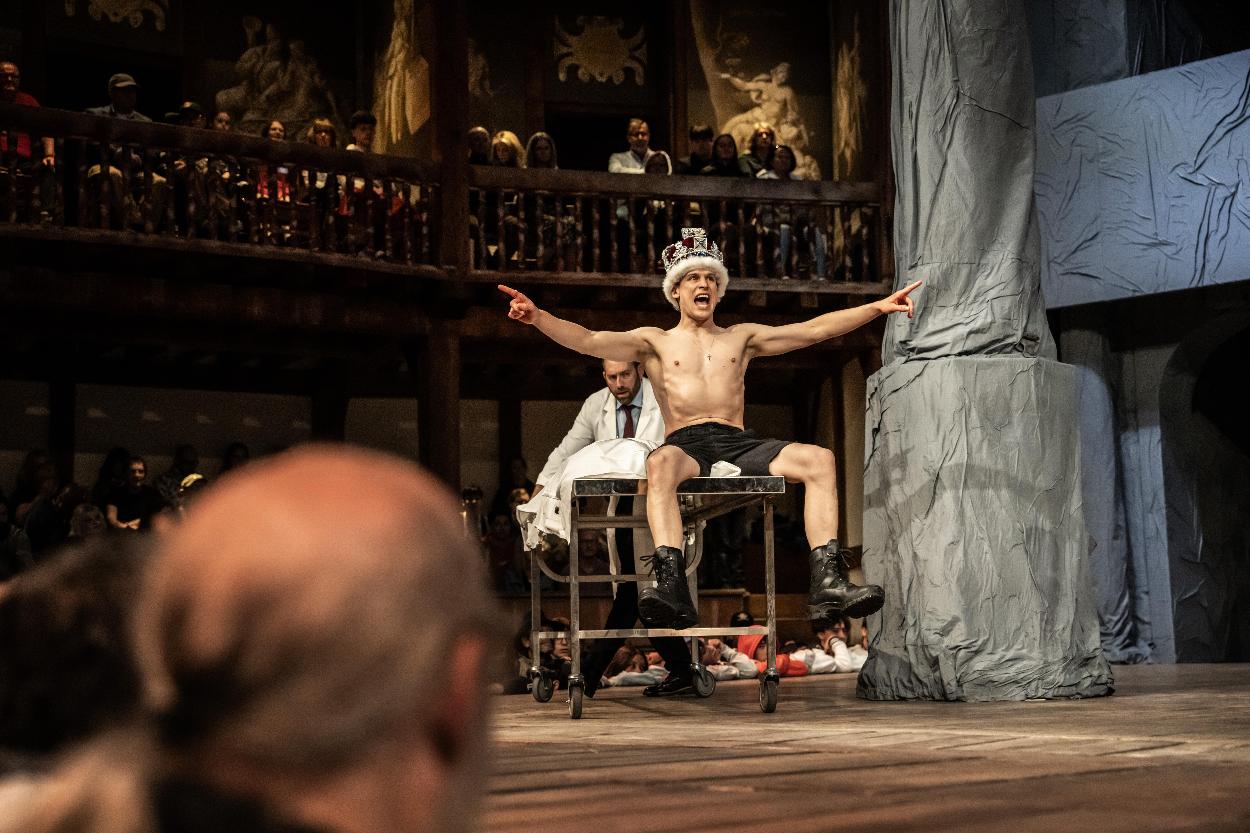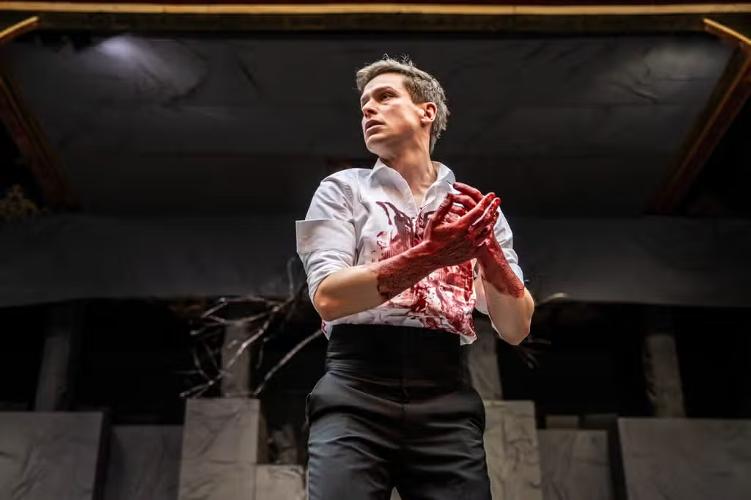In the Globe's latest production, director Abigail Graham cleverly injects comedy into the dark and devastating story of a man consumed by a lust for power, told through the lens of child loss.
Macbeth is tempted by power after receiving prophetic words about his title. With the encouragement of his wife, he quickly turns to deception and murder in order to secure his kingship and legacy, and we watch as guilt and paranoia take root in their minds and a tragic end is suffered by many.
While the idea of children and the brutal reality of losing them pervades this piece, the anguish of the titular couple's loss of a child is strikingly reflected in a simple but impactful set piece: an ever-present barren tree which stands tall as we enter the space, soon to be lifted high and upside-down, reflecting the roots of madness that have spread from the seed of prophecy, watered by the grieving couple's tears.

In a realistic portrayal of a pair navigating a difficult chapter together, Matti Houghton brings a frantic warmth to Lady Macbeth, while Max Bennett's Macbeth drips with toxic masculinity, rarely breaking his composed exterior but for mere glimpses of the broken man beneath. By contrast, Joseph Payne is touchingly insecure as Malcolm, and Aaron Anthony breaks our hearts with a powerful portrayal of Macduff who recognises that, to deal with his grief, he “must also feel it like a man”.
A stand-out performance comes from Calum Callaghan, expertly toeing the line between friend and foe, as any good Porter must. This lends itself beautifully to the extension of his performance as Witch and Murderer, an interesting and effective directorial choice to blur the character lines of the multi-roling witches; Callaghan immediately endears himself to the audience, steering the play through to its gritty and inevitable close.
As well as decidedly raw and honest performances from all involved, every single cast member must be commended for their exceptional comedic timing, evoking far more laughter than is expected from this play, including some witty changes to the original text.
We do, however, find ourselves desperately wanting for more tension throughout. In a play filled with ‘black and deep desires', moments of utter horror deserve greater indulgence to immerse the audience in the tragedy at hand and help build to a more climactic end – perhaps more could be made of the beautifully haunting talents of the musicians. Some crucial depth of character relationships is also lost through the fast pace of the performance.
This production certainly offers a unique perspective to a story that can easily boil down to pre-ordained determinism. The space is used expertly by all involved, and contemporary costuming enhances a refreshingly relevant imagining of the tale.
It runs until 28 October.
Review: Penny Lane Photos: Johan Persson

